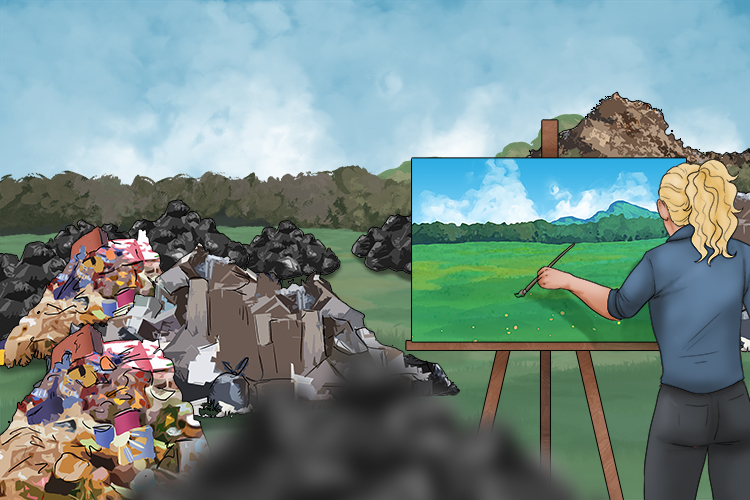Waste – The unwanted material left over from the production process
(Pronounced wayst)
Waste is self-explanatory as it has essentially the same meaning in business as it does in everyone's home.
Waste = unwanted, excess material, substances or by-products

Unlike household waste, which is often collected weekly by a local authority’s waste collection service, the disposal of a business’ waste can be much more complicated and expensive. It can also be much more damaging to the environment due to the sheer quantity and type of waste that businesses produce.
Large businesses are required by governments to keep records of their waste disposal activities. The records are used by authorities to check and track compliance with disposal regulations.
Companies are constantly thinking about ways to reduce or reuse waste, as this can save money and even produce a new revenue stream. For example, a furniture company can collect the waste sawdust from the manufacturing process and compress it into briquettes for use as fuel for wood-burning stoves. This sawdust might have otherwise been disposed of at the cost of the company.
Other waste and by-products may be too toxic to reuse or dispose of in traditional ways (recycling and general landfills). Depending on the type of hazardous waste, disposal can involve incineration or careful transfer to specially built, sealed landfills that are designed not to allow leaks into the surrounding ecosystem.
For any business, waste is becoming more and more of an expense and is becoming important topic to be discussed at a strategic level by management.




